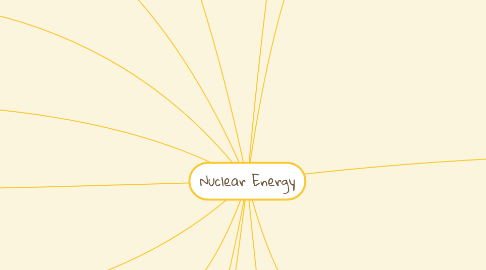Nuclear Energy
by William DUNSTAN


1. Cons
1.1. Radioactive waste remains deadly for thousands of years. No safe way of removing.
1.2. Expensive to build and run,
1.3. Requires some fossil fuels to be burnt in process (mining uranium, transport)
2. Pros
2.1. Produces no carbon dioxide, and can reduce carbon emissions.
2.2. Building nuclear stations ensures a country retains control of its energy.
2.3. 24/7 production of energy
3. Yes please? No thanks? For and against nuclear power
3.1. Should we use nuclear power?
4. What is the issue?
4.1. The world needs more sources of renewable and clean energy. Nuclear energy can provide all this. However it is also potentially dangerous
5. Who is affected and what are their stance?
6. What kinds of nuclear energy and is it better than alternative sources?
6.1. All nuclear fission, mainly American designed light water reactors.
6.2. Relatively few plants (54) could produce 1/3 of Japans energy needs. This took very little land area,
7. What are the dangers and benefits of this technology?
7.1. Huge amounts of energy output. Modern plants can give up to 2.8 GW of energy or more.
7.2. No greenhouse gases released so does not contribute to climate change.
7.3. Any error potentially can contaminate local area.
7.4. Radiation stays in environment for a long time.
8. What is the history behind the issue?
8.1. History of Nuclear Energy
8.2. https://www.lucidchart.com/documents/edit/50a7c56a-b48f-4d17-973d-bdd320e69c9d#
9. What proportion of energy is produced by nuclear power plants
9.1. Prior to 2011 incident, 1/3 of Japan's energy came from nuclear sources. Roughly 46GW.
9.2. After 2011 incident, no plants were active until 2015
9.3. Currently only 1 plant active, producing 1% of Japans energy.
10. Fukushima, Japan
10.1. http://www.world-nuclear.org/information-library/safety-and-security/safety-of-plants/fukushima-accident.aspx
10.2. Seconds From Disaster - Fukushima [Documentary] - NuclearAdvisor
11. Chernobyl, Russia
11.1. Chernobyl | Chernobyl Accident | Chernobyl Disaster - World Nuclear Association
11.2. Zero Hour: Disaster at Chernobyl Discovery Channel (2004)
12. World Usage
12.1. World Statistics - Nuclear Energy Institute
12.2. Atomic Energy
13. Japans view
13.1. The future of nuclear energy in Japan after Fukushima
13.2. Six years after Fukushima, much of Japan has lost faith in nuclear power
13.3. Japan - International - Analysis - U.S. Energy Information Administration (EIA)
13.4. 原発即時ゼロで失われるものー電力、外交カード、そして | ポリタス 原発“新設”の是非
14. Solutions
14.1. Allowing all powerplants to reactivate
14.1.1. Will boost indigenous power production. Will not be well met by public, resulting in unrest and direct opposition to the government.
14.2. Reactivating no power plants
14.2.1. Convert entirely to other sources of energy, solar, hydro and wind. Would need to import a lot more oil for energy.
14.3. Taking precautions, high security checks before reactivation
14.3.1. Plants can be run mostly autonomously/ remotely. Reduces chance of human error.

